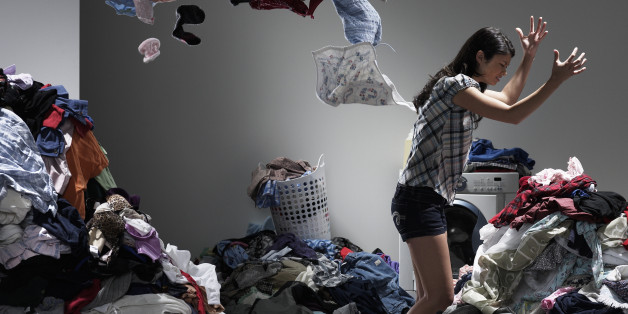
Have you ever come home to a mess and immediately felt stressed out? Well, you are not alone. Numerous people cite feeling stressed out whenever their home or workplace is cluttered. Unfortunately, they often let this feeling overwhelm them and continue to put off organizing their home. Don't let this be you. Keep reading to find out how to start getting your home in order and feeling less stressed out each day.
How Does Mess Lead to Stress?
When the mind is bombarded with excessive stimuli, such as a cluttered home, it causes the senses to overwork and focus on stimuli that are not necessary or important. This then draws your focus away from what it should be on, like working. It also makes it much more difficult to relax when you get home after a long day at the office.
Instead, a messy home or work area can also signal to the brain that there is still a lot of work that needs to be done or makes it stress about how long it will take to clear and put away the pile of clutter. This can cause anxiety and, in some people, a sense of guilt or embarrasment. Other people might feel inhibited creatively when their home is in disarray.
All of these factors can lead to additional stress in your life. The good news is that unlike many other forms of stress this is one of the easiest ones to correct.
How to De-Clutter & De-Stress?
First off, unless you live alone, it is very unlikely that the mess that has arisen is entirely on your shoulders. Come together as a family to clean up. Just knowing you don't have to tackle it all by yourself will help to relieve some of the stress you are feeling.
If you do live by yourself, don't freak out about the state of things. Take a deep breath and only focus on one room at a time. Taking on too much at once will just cause you to become overwhelmed and will most likely result in you coming home to a mess again next week. You'll also be proud of yourself after you've completed organizing each room.
To prevent a large mess from occuring in the future, you'll need to put some systems in place. This should require creating designated spaces for items and supplies that you use frequently and would like to find quickly. However, it is important that you try to make these areas drawers, cabinets, or other areas that will not leave your belongings lying around the home and impacting your visual stimuli.
After you have created homes for your things, you'll need to figure out what stays and what goes. Basic rule of thumb: if you haven't used it in more than a year or if you have duplicates, get rid of it. To help you get a better idea of these items, create a list and then start four different piles: keep, storage, donate, and trash. Everything you own should go into one of these four piles, and each item in your keep and storage piles should be added to your list. This will really help you to de-clutter and remove a lot of unnecessary stress that haunts you while you are at home.
When you've decided on what you are keeping or putting in storage, you can divide these into more concrete categories to help you better keep track of everything. For instance, it's a good idea to know exactly where you've placed all of your important documents and be able to access them easily. Storage items, however, don't need this kind of emergency. Instead, you can place them in dated boxes and more them to your garage, attic, or off-site storage unit. A year from now, you'll need to check which boxes have not been opened and go through them to determine what you can get rid of.
When you need more tools to help you control other areas of stress in your life, contact Kent Brand at A Family Matter. As a counselor for over 40 years, he's developed trusted methods for dealing with stress anad the mental health conditions that can often arises as a result.
Resources: